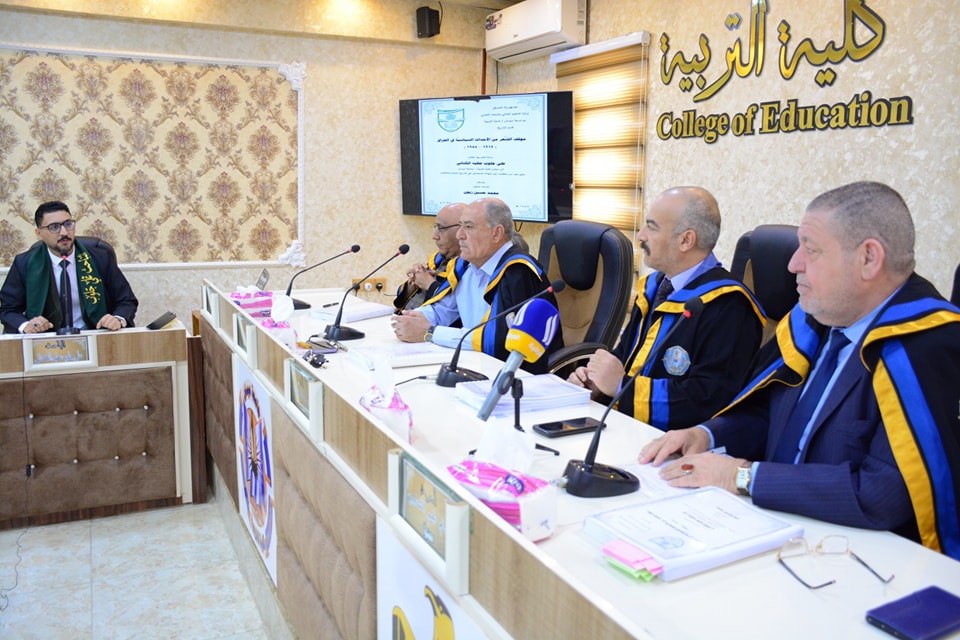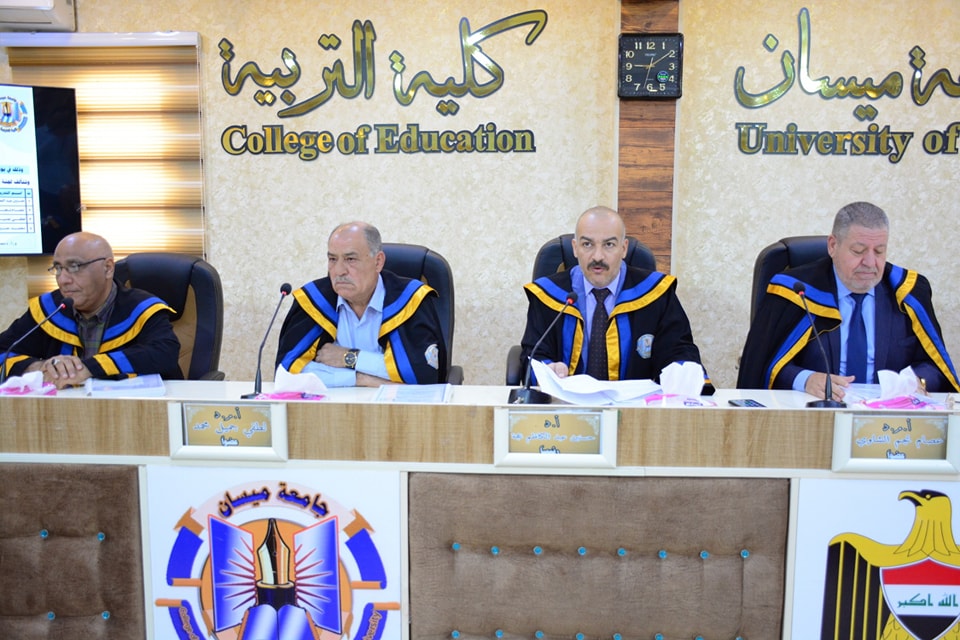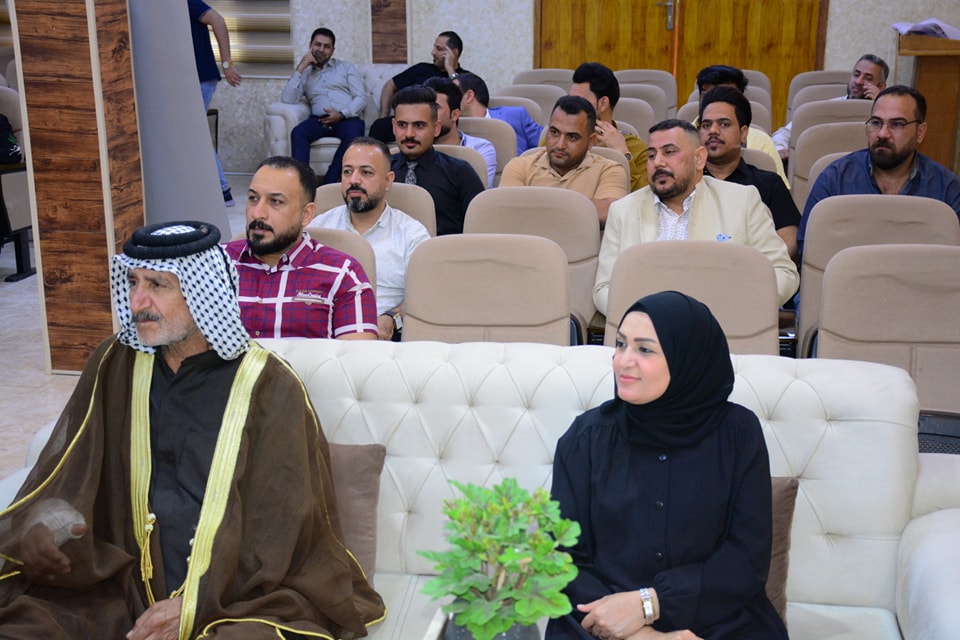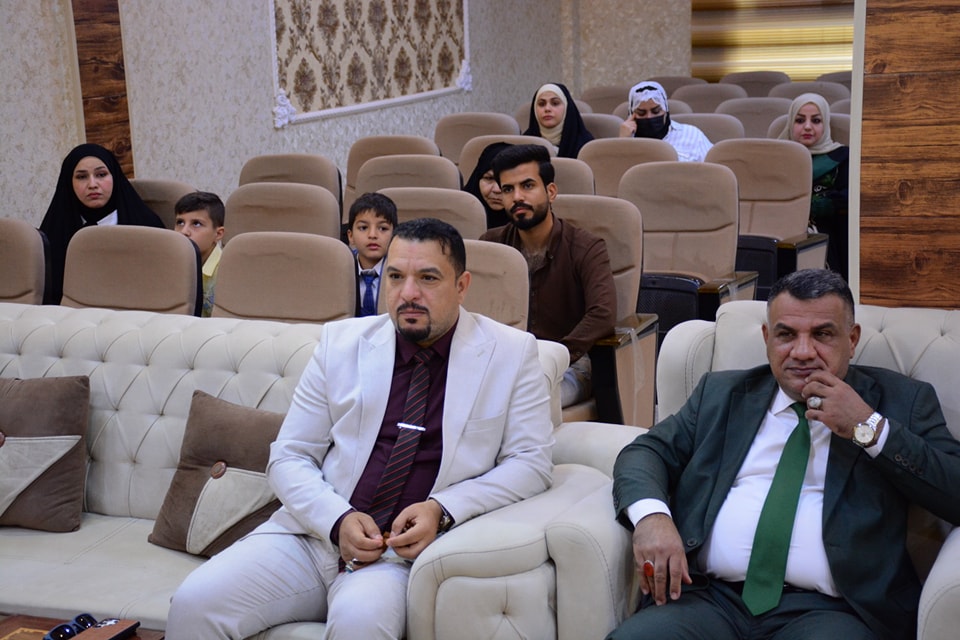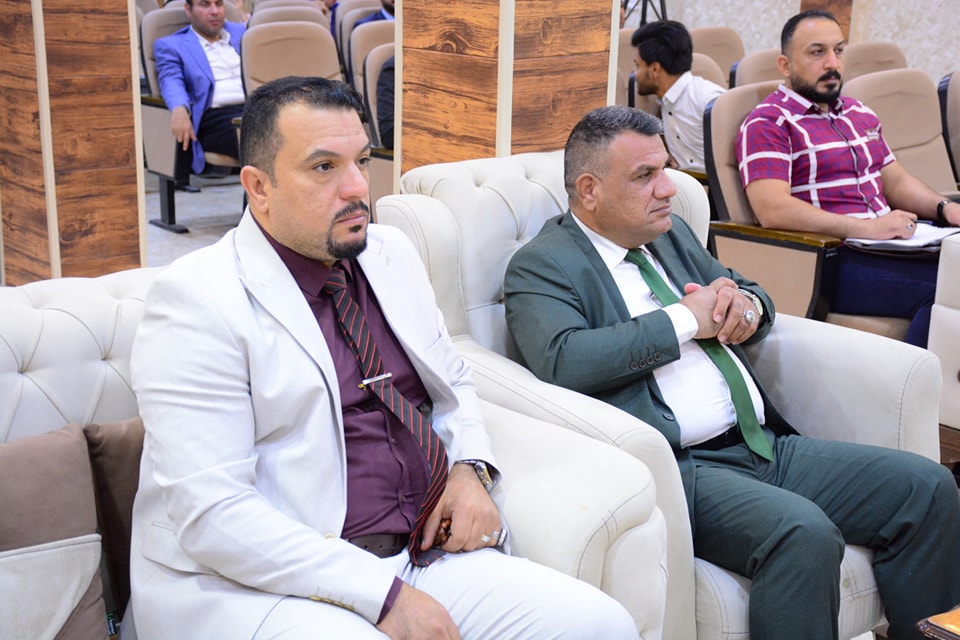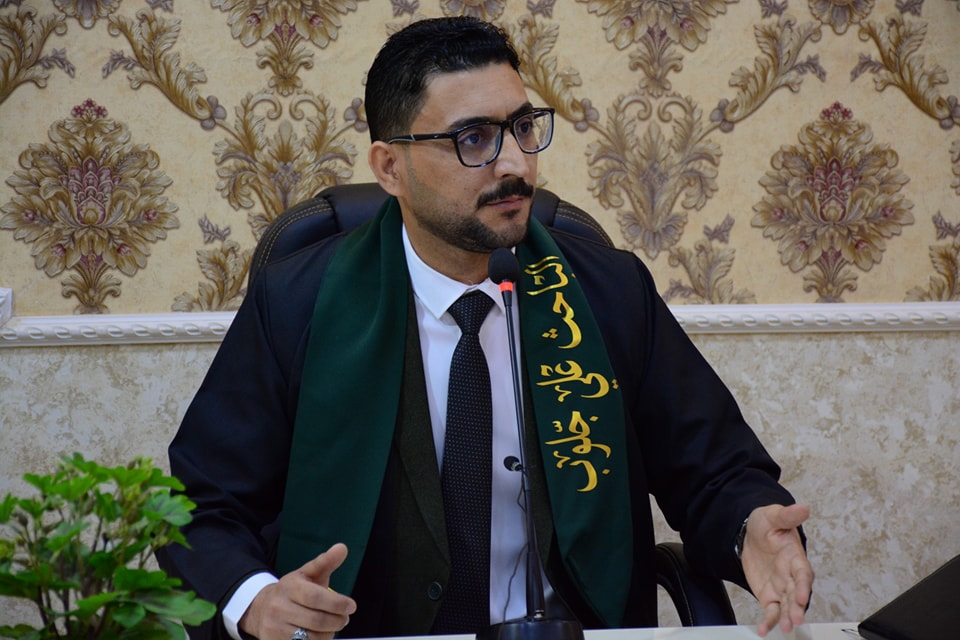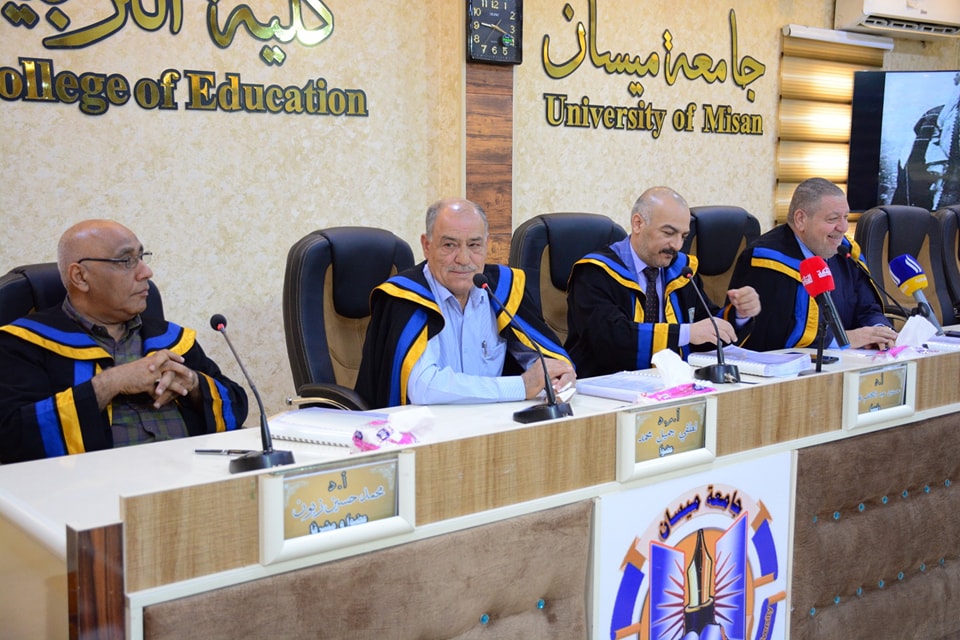A master’s thesis was discussed at the College of Education/University of Maysan, tagged (Poetry’s Position on Political Events in Iraq 1914_1958) by researcher Ali Jalob Atiyah al-Kinani, under the supervision of Professor Dr. Muhammad Hussein Zaboun al-Saadi. In the presence of the Dean of the College of Education, Assistant Professor Dr. Buraq Talib Shalash, and the Assistant Dean for Scientific Affairs, Professor Dr. Rana Sabeeh Abboud. The thesis reached a number of perceptions and conclusions, the most important of which is: Poetry was one of the weapons with which the intellectual class, and behind it the general Iraqi people, confronted the British occupation. It is one of the most effective means of addressing the masses and shaking their feelings.
The impact of poetry has also emerged as an important historical source for explaining the details of political events. It was the best page to record, and it also became clear the important influence of poets in inciting the revolution against the British occupation in 1920 AD, which poetry can be considered one of the internal reasons for its establishment. Their enthusiastic poems that they sang before the revolution, especially on religious occasions, left a great impact on the souls of the Iraqis. Likewise, poetry during the royal era was able to leave the stage of describing or conveying events, to become their engine and an important center for creating their situation, and this was represented in most of the celebrations and demonstrations that were attended. In it, it contributed to changing the course of some of them. The thesis aims to show that popular poetry, although it did not occupy a large media space at the time,However, its position seems more influential than eloquent poetry on some political events, especially in the era of the British occupation, because most of it was written in an improvisational manner and recited during the event itself. In addition, it was written in an easy language that everyone understood, regardless of their cultural levels, as well as what contributed to Strengthening his position is the spread of illiteracy in Iraqi society, and then the decline of the classical Arabic language. Therefore, colloquial language was the prevailing language of communication in that era, in addition to the fact that its position was distinguished by the presence of women in it more than their presence in classical poetry, in addition to that he documented for us the details of some of the events that were known through the poetry that was sung in it, One of the most important of which is the battle of Rarangiya, which people have known as “bricks is better than Migwari” than its name.
